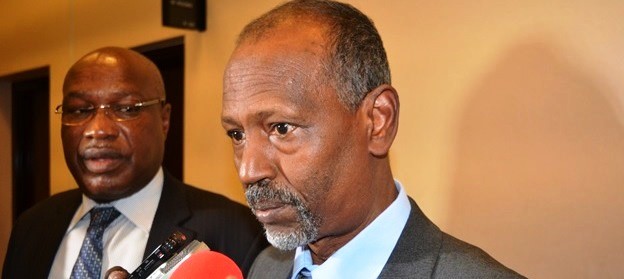The formation of a new unity government in South Sudan in May 2019 is facing key obstacles that need to be resolved, the East African regional grouping IGAD said.
Speaking during the inaugural meeting of the Independent Boundaries Commission (IBC) in Juba on Monday, the IGAD Special Envoy for South Sudan Ismail Wais said that the parties are now facing a time crunch, as the peace accord provides for a transitional government to assume power on 12 May.
He further said the revitalised peace agreement is already behind schedule and that a unified army has not yet been trained.
“You remember very well that it is very important that we have a trained unified South Sudanese People’s Defense Forces. We have not yet even started the training of the forces,” he said.
“The provision is very clear. It says either the training comes first or the formation of R-TGoNU, and it says whoever comes first should be the case,” he added.
Wais pointed out that the number of states and their boundaries need to be resolved by the Independent Boundaries Commission (IBC).
“This IBC will determine one of the most important outstanding issues we had in the last HLRF sessions, that is the number of states and the boundaries,” he said.
The IGAD special envoy called on the South Sudan parties to consider giving serious consideration to the obstacles and find a solution.
Separately, Ismail Wais said he is still engaging holdout opposition groups in South Sudan, pointing out that the region wants to achieve an inclusive peace process.
“We take the engagement of these groups very seriously and we don’t want to leave anyone behind in this peace process,” he said.
Ismail promised to work together with South Sudan’s parties in the pursuit of lasting peace.
In September 2018, South Sudan’s President Salva Kiir and several opposition leaders, including main opposition leader Riek Machar signed a peace deal to end the civil war.




